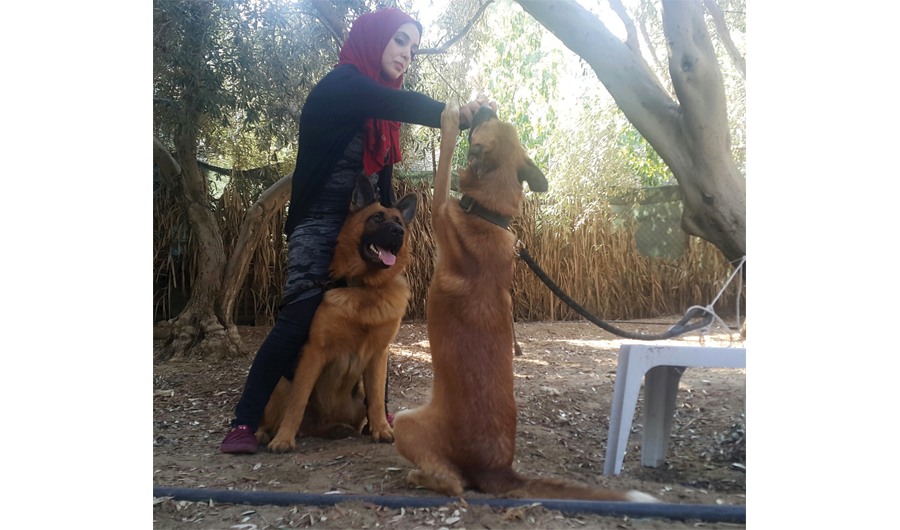On the outskirts of Tripoli, days of silence are broken by bursts of heavy artillery fire. Fighters camped out for weeks in abandoned houses watch for movement on enemy lines. A drone buzzes overhead and strikes, causing brief panic.
The nervy ebb and flow of the battle for Libya’s capital shows no sign of changing soon.
Nearly seven months after Commander Khalifa Haftar launched an offensive against the city, the war has reached an impasse that foreign support on both sides has failed to unlock.
Thousands of people have been killed in sporadic fighting since 2014 between factions in the east and west. The violence has allowed militants and migrant smugglers to flourish, hit Libya’s oil industry and divided the country’s key institutions.
Leaders on both sides appear to be ruling out compromise.
FASTFACTS
• Battle for Tripoli began in April, upending peace push.
• Frontlines beyond buffer zone have rarely shifted.
• Both sides dependent on foreign drones.
For those in Tripoli, Haftar must withdraw to his stronghold in the east before any cease-fire.
“We hope this war ends today, but the political leadership clarified that for talks on a cease-fire the invader should return to where he came from,” Osama Al-Juweili, a top military commander of forces aligned with the internationally recognized government in Tripoli, said in an interview.
Haftar has said he is willing to seek a political solution but only once the capital is rid of the armed groups that provide the Tripoli government with its core support.
Lacking momentum to bring local groups to his side, Haftar may be playing a long game, waiting for splits among previously fractured forces fighting against him, said Tarek Megerisi, a policy fellow at the European Council of Foreign Relations.
“The state of war that they’re in is becoming more normalized,” he said. “That makes further wars more likely.”
Shifting alliances
Forces on both sides are drawn from locally based armed groups that have made up Libya’s shifting alliances since the NATO-backed uprising that overthrew Muammar Qaddafi in 2011.
Those fighting with the Government of National Accord (GNA) in Tripoli were often at odds before this year’s war mobilized them against Haftar, whom they accuse of seeking to return Libya to one-man rule.
Haftar’s Libyan National Army (LNA) has extended its reach through tenuous local alliances, and struggled to control parts of the east despite support from abroad.
UN experts said much of that backing came from the United Arab Emirates and Egypt, and Haftar has been received on official visits by both. The UAE and Egypt have either not responded to UN requests for information or denied material support.
Reluctant to engage in full-blown combat and risk heavy casualties, both sides have looked to foreign backers to turn the tide in their favor around Tripoli by deploying drones with precision-guided missiles.
Turkey has provided and operated Bayraktar drones for the Tripoli government, while the LNA uses Chinese-made Wing Loon drones operated by the UAE, analysts and diplomats say.
Emirati and Turkish officials did not immediately respond to requests for comment.
Mobilizing for a major operation is made harder because of the threat from the air, said Megerisi.
A drone strike witnessed by Reuters reporters earlier this month hit close to a checkpoint in south-eastern Tripoli, on the edge of a buffer zone where most civilians have been evacuated.
Men in military uniforms near a burning vehicle frantically waved people away for fear of a follow-up strike as ambulances rushed to the scene, but within an hour nearby streets had returned to normal.
Civilian casualties
Life in central Tripoli continues largely as before, though the fighting has strained a city worn down by years of turmoil.
More than 100,000 people have been displaced from the city’s outskirts.
Scores of civilians have been killed and maimed as both sides try to pick off targets in residential areas, often using inaccurate, decades-old rockets and artillery, rights group Amnesty International said in a report last week.
Wary of foreign meddling, many Libyans have lost hope the conflict can be resolved internally.
“Libyans don’t understand each other,” said Mariam Ali, a 26-year-old teacher walking with a friend in the city center. “There’s no solution in Libya.”
The offensive by Haftar, a former general under Qaddafi who lived in the US and gained citizenship there before returning to Libya in 2011, upended a diplomatic peace push.
He launched his campaign on April 4, but its slowing momentum has raised questions over his military capability and future, analysts and diplomats say.
Path to peace unclear
Juweili said private military contractors from Russia had been killed in a recent, failed attempt to cut the road to Azaziya in southern Tripoli. Their journey into Libya and to the frontline by air and through Syria had been tracked, he added.
An LNA spokesman denied the presence of Russian fighters in its ranks, and the use of any foreign aircraft.
Haftar’s forces have expressed confidence that they can still achieve a swift victory.
Tripoli commanders counter that they have centralized their military operations, and could mobilize thousands of extra fighters if needed.
If Haftar took Tripoli, “he would be left in charge of a raging insurgency and insurrection,” said a senior US diplomat. “I think even a number of his patrons have great concerns about what it would actually mean for him to ‘win’.”
The path to political negotiations is unclear.
An international conference on Libya is expected in Germany, though preparations have been slow and no date has been announced.
Western diplomats say the aim is limited to trying to persuade the UAE, Egypt and Turkey to deescalate the conflict.
“I’d say the dynamic is to get people to act in the spirit of enlightened self-interest, and there’s nobody in a position to bludgeon anybody into changing their behavior right now,” the US diplomat said.




